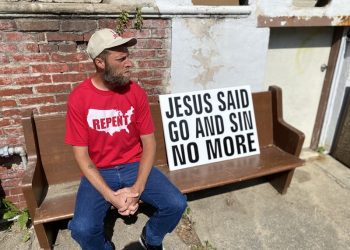Pope Leo XIV formally commenced his pontificate on Sunday, May 18, delivering an inaugural homily in St. Peter’s Square that underscored themes of unity, love, and humble service, while also touching upon theological distinctions within Christianity. The new pontiff, the 267th Bishop of Rome, outlined the mission entrusted to the successor of Peter, yet placed a particular emphasis on Christ as the ultimate “rock” and cornerstone of the Church.
Born Robert Prevost in Chicago, the 69-year-old Pope, who also holds Peruvian citizenship, was elected on May 8th following the passing of Pope Francis on April 21st. Pope Leo XIV articulated his intent to uphold his predecessor’s work on social issues, including combating poverty and environmental protection, alongside a commitment to preserving “the rich heritage of the Christian faith.”
In his homily, titled “‘This is the Hour For Love’,” Pope Leo XIV described his election as an undeserved call, stating, “I come to you as a brother, who desires to be the servant of your faith and your joy, walking with you on the path of God’s love, for he wants us all to be united in one family.” This phrasing, emphasizing a fraternal and serving role, has been interpreted by some Christian observers as a potential move towards a primus inter pares (first among equals) model for the papacy. Such an approach resonates with positions articulated in ecumenical dialogues with Orthodox, Anglican, and Lutheran churches, which emerged from the historical context of the Protestant Reformation and its emphasis on differing understandings of ecclesiastical authority and the sufficiency of Scripture.
The Pope centered his message on “love and unity,” describing these as “the two dimensions of the mission entrusted to Peter by Jesus.” He drew from the Apostle Peter’s own words in Acts 4:11 and 1 Peter 2:5, proclaiming that Jesus “is the stone that was rejected by you, the builders, and has become the cornerstone.” This explicit designation of Christ as the ultimate foundational “rock” of the Church places Peter’s unique pastoral role firmly beneath Christ’s supreme headship.
Leo XIV further articulated, “if the rock is Christ, Peter must shepherd the flock without ever yielding to the temptation to be an autocrat, lording it over those entrusted to him.” He stressed that the “ministry of Peter is distinguished precisely by this self-sacrificing love, because the Church of Rome presides in charity and its true authority is the charity of Christ. It is never a question of capturing others by force, by religious propaganda or by means of power. Instead, it is always and only a question of loving as Jesus did.” This understanding of the Roman Catholic Church’s authority, rooted in claims about Peter’s unique succession, contrasts with the post-Reformation emphasis among Protestant traditions on sola Scriptura, where the Bible alone is considered the ultimate and sufficient authority for faith and practice, with no single earthly figure or tradition holding interpretive authority.
Commenting on the differences between Roman Catholicism and Protestantism, Rich Lusk, pastor of a church in the Communion of Reformed and Evangelical Churches, posted on X on May 3, “The papacy solves nothing. The Reformation was, in part, an answer to the failure of the papacy.” He added, “If we can interpret the infallible words of the pope with reasonable, we can interpret the infallible words of Scripture with reasonable certainty. If we can recognize an infallible church/magisterium, we can recognize an infallible Scripture.” On May 11, Lusk further stated, “Why am I not a Roman Catholic? Peter, Paul, and Mary. Rome gets Peter wrong, Paul wrong, and Mary wrong.” He also posted on January 3, “Anglo-Catholics have never built a free Christian nation. Calvinists have.”

The pontiff expressed a strong desire for a “united Church, a sign of unity and communion,” which he believes can become “a leaven for a reconciled world.” He called for collaboration with “our sister Christian churches, with those who follow other religious paths, with those who are searching for God, with all women and men of good will, in order to build a new world where peace reigns!”
The inaugural Mass was attended by various world leaders, including U.S. Vice President JD Vance and Ukrainian President Volodymyr Zelenskiy. During the ceremony, Pope Leo XIV received traditional symbols of his office: the pallium, representing his role as a shepherd, and the “fisherman’s ring,” recalling St. Peter and his authority. He also briefly addressed global conflicts, speaking of Ukraine being “martyred” and the humanitarian situation in Gaza.





























